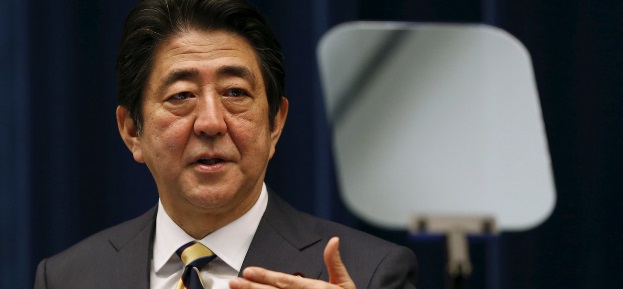ERISA TAKEDA WRITES – Is PM Abe following in the footsteps of Xi regarding clamping down on the media?
Japan has a different media system from China’s, so that is quite a dramatic statement and therefore I do not think that Abe is exactly following Xi’s footsteps regarding media censorship. But the situation is unsettling: Abe’s government is putting pressure on Japanese media, such as broadcasters, to remain politically neutral.
Abe’s declining approval rating, perhaps due to the negative or stagnant effect of
“Abenomics,” among other reasons, is putting the government in a defensive position. The prime minister has become sensitive to negative criticism of the government and is pressuring the Japanese media by hanging the Broadcast Law of 1950 over its head.
The Broadcast Law states in Article 1, Section 2, that it protects freedom of expression by ensuring impartiality, truthfulness, and autonomy and that it is not about political neutrality, which was a provocative remark put forward by the politically conservative Communications Minister Sanae Takaichi on February 8.
To intimidate the broadcasters to self-censor, the minister has provided an ultimatum that broadcasters who fail to show “fairness” in political coverage could lose their licenses. Newscasters, such as Hiroko Kuniya, from the famous current affairs programme on public broadcaster NHK, and Ichiro Furutachi, from a popular evening news programme on TV Asahi, have already been coerced to resign due to their candid opinions towards the government.
According to Reporters Without Borders’ global press freedom rankings, Japan fell to 61st place in 2015 from 11th place in 2010 among 180 countries. Although Japan’s broadcasters, such as NHK and TV Asahi are not directly controlled by the government, such as CCTV in China, the compulsion to self-censorship could be just as corrosive for Japan’s democracy over time.


